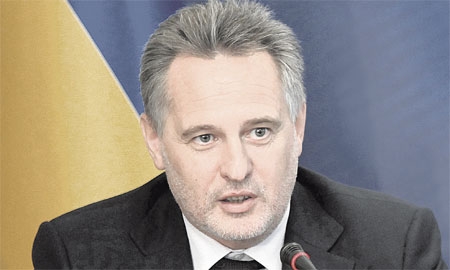We are witnessing that the new administration is committed to meeting the current economic challenges. What has changed in the dialogue between the public and private sector?
Perhaps the most significant change is that the voice of the private sector is being heard by the public sector. Today the dialogue between the government and Ukrainian businesses can be compared to two-way traffic. President Yanukovych understands and respects the position of business. He is conscious that it is not the bureaucrats who make the economy stronger, and he is trying to reverse this bureaucratic machine. The President asks the business community what they need and advises the Cabinet of Ministers accordingly.
The fact that the voice of business is being heard means that the government acknowledges and respects the role business plays. And it is fair to say that it is the private sector which really builds the economy. So it’s important that the voice of business has finally been heard.
Last year you were appointed chairman of the Joint Employers’ Movement of Ukraine, which is quite appropriate considering your company is one of the biggest employers in Ukraine. What does this appointment mean to you?
My goal is to establish an effective dialogue between Ukrainian businesses, trade unions and the government. This is very important for Ukraine because only with a shared vision together can we secure stability and development in the country.
It is crucial to utilize the Ukrainian scientific potential with the maximum efficiency. Today science has no access to the real sector of the economy, to the production. Implementation of innovations is neither financed by the government, nor by businesses. And this creates a disaster. The scientists innovate, but implement nothing. On the other side, Ukrainian industry desperately needs these innovations. So this is another sphere where it is crucial to develop an efficient public-private partnership.
Is the public-private partnership limited to business matters?
Definitely not. It should be said that the majority of industrial units within the group were historically conceived as the leading force behind the social and economic development of respective localities and even regions. Some of these industrial units completely maintain whole cities.
Just imagine if this enterprise were to stop – people no longer receive income, the budget is empty – a social catastrophe would be inevitable. And there are eight such enterprises in our group now. You can imagine the responsibility I bear on my shoulders. So, on the one hand I have my own ambitions related to the growth of my business. But on the other hand these ambitions coincide with the ambitions of the government. By making my company big and competitive, I make Ukraine big and competitive.
Group DF is committed to implementing vast corporate social responsibility initiatives. In addition to that, you also give private support to a number of other charitable initiatives, such as the Ukrainian Studies program at the University of Cambridge. Why do you support these initiatives?
Supporting the Cambridge Ukrainian Studies initiative is only natural for me. First and foremost, I am a Ukrainian. This is where I live and where my family lives. This is also where I have invested a lot of money. So I care about Ukraine’s future. It is important for me that Ukraine keeps developing and that our country is well known and respected around the world. I want the world to know more about Ukraine, about our people, about our rich cultural heritage.

0 COMMENTS